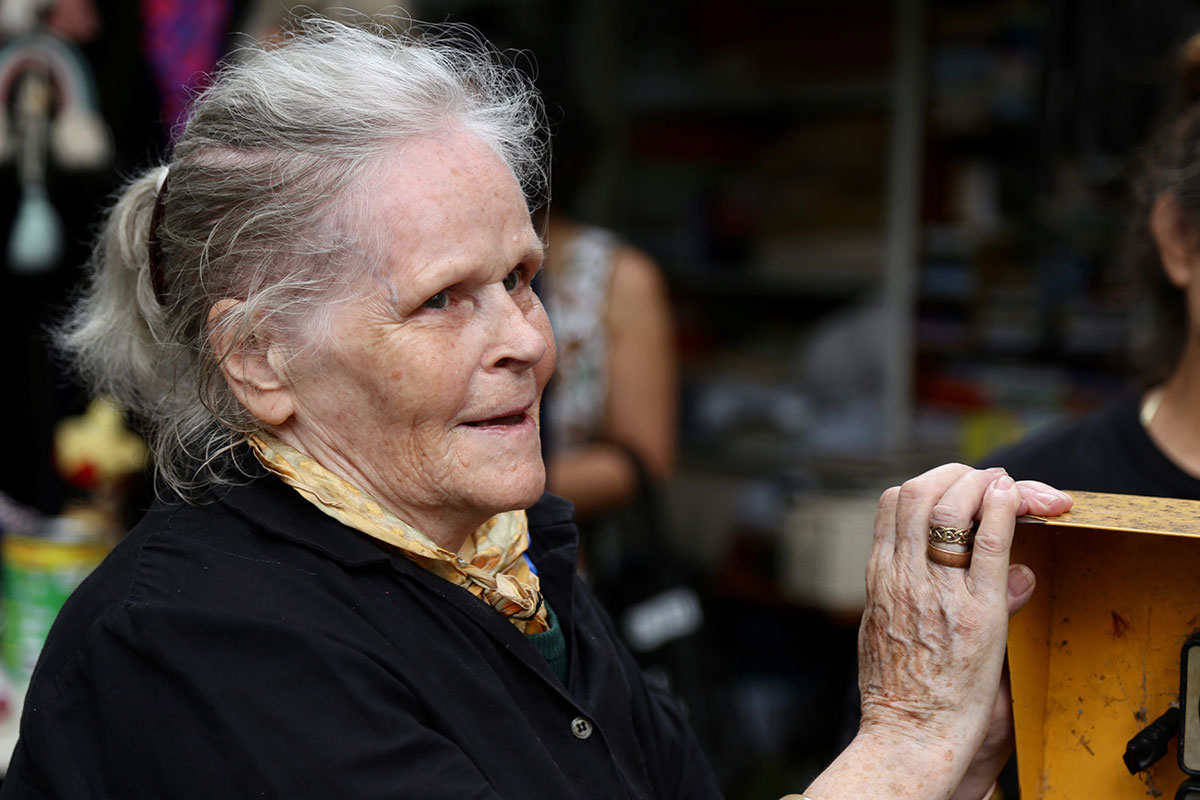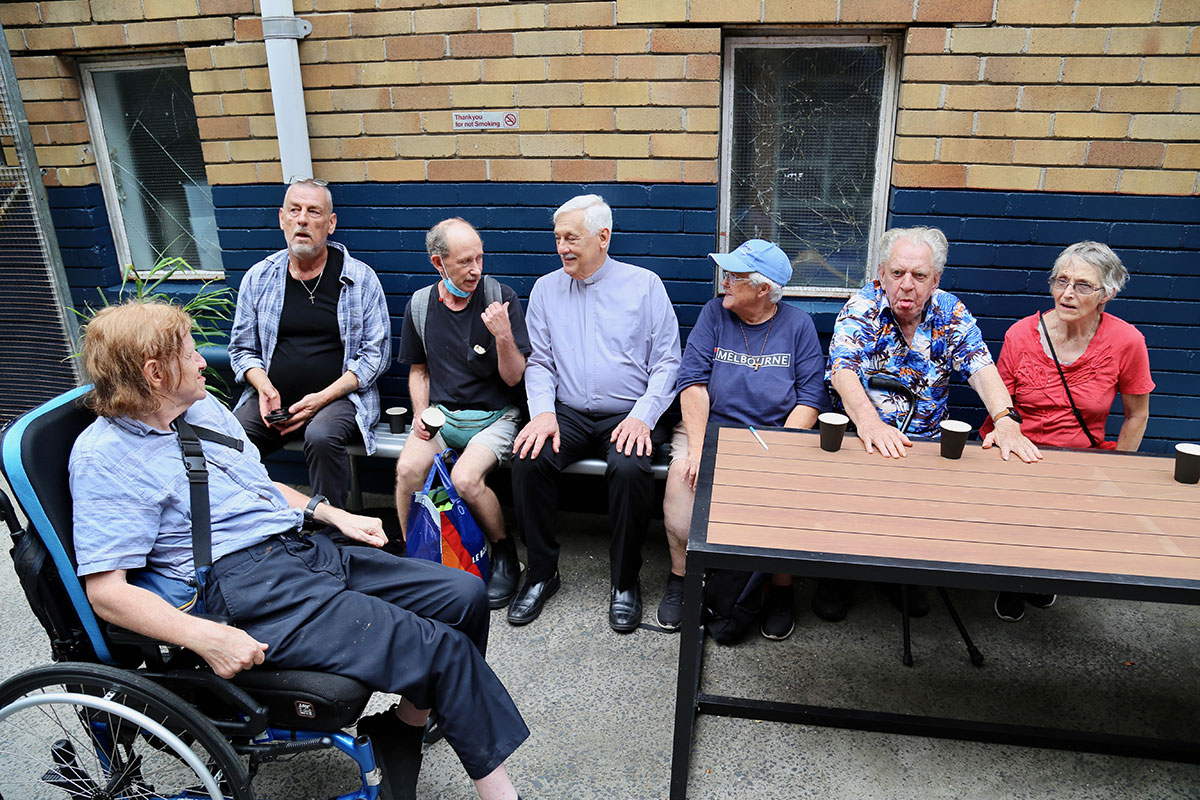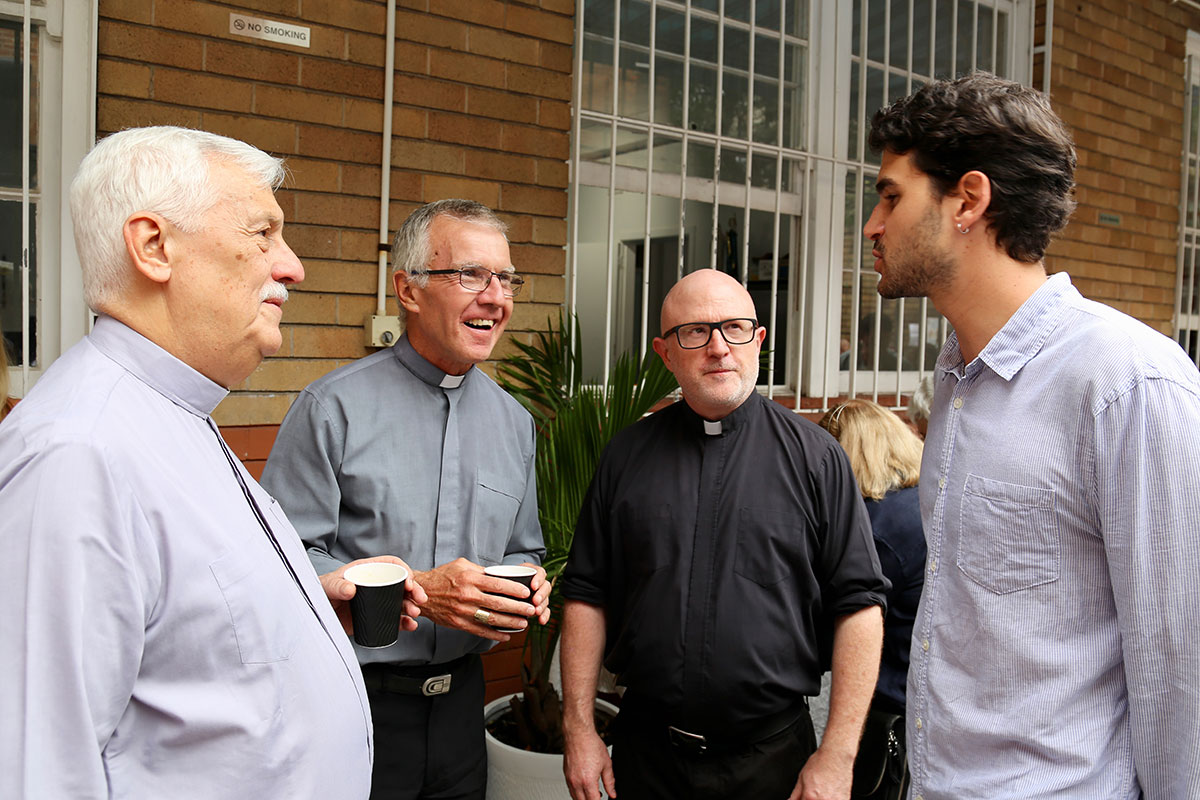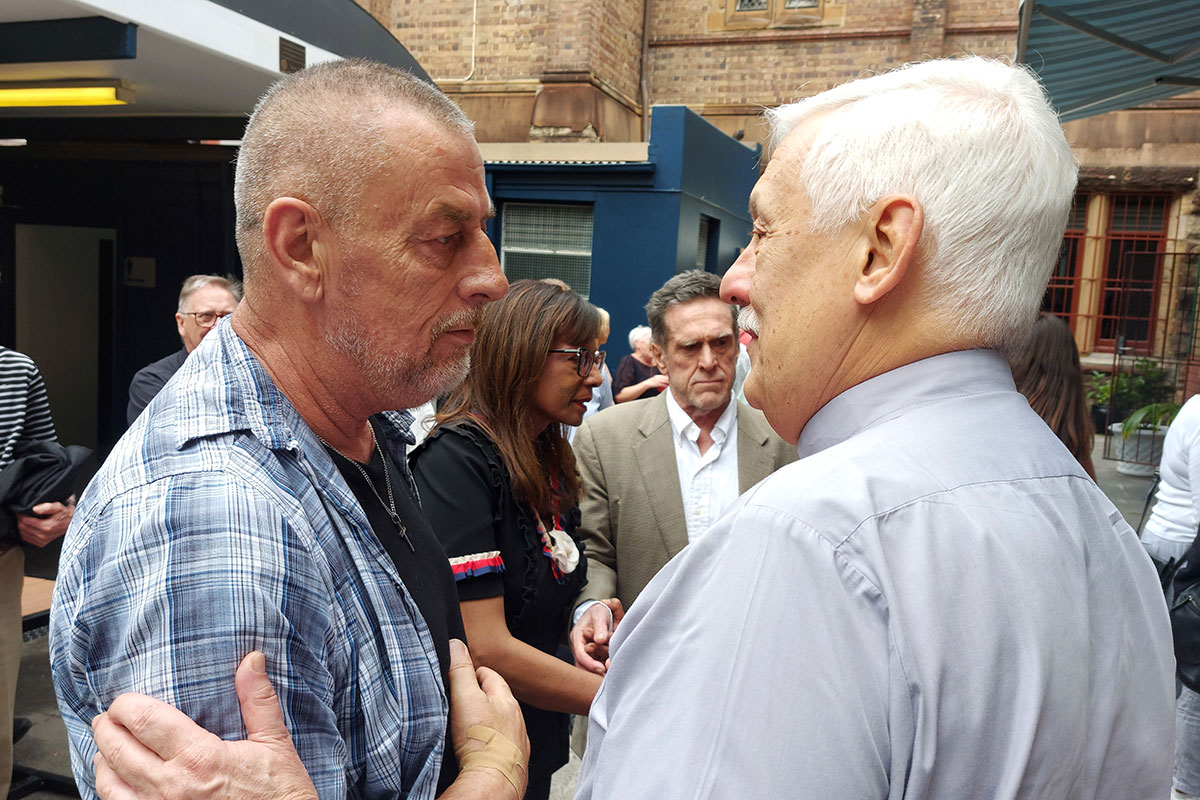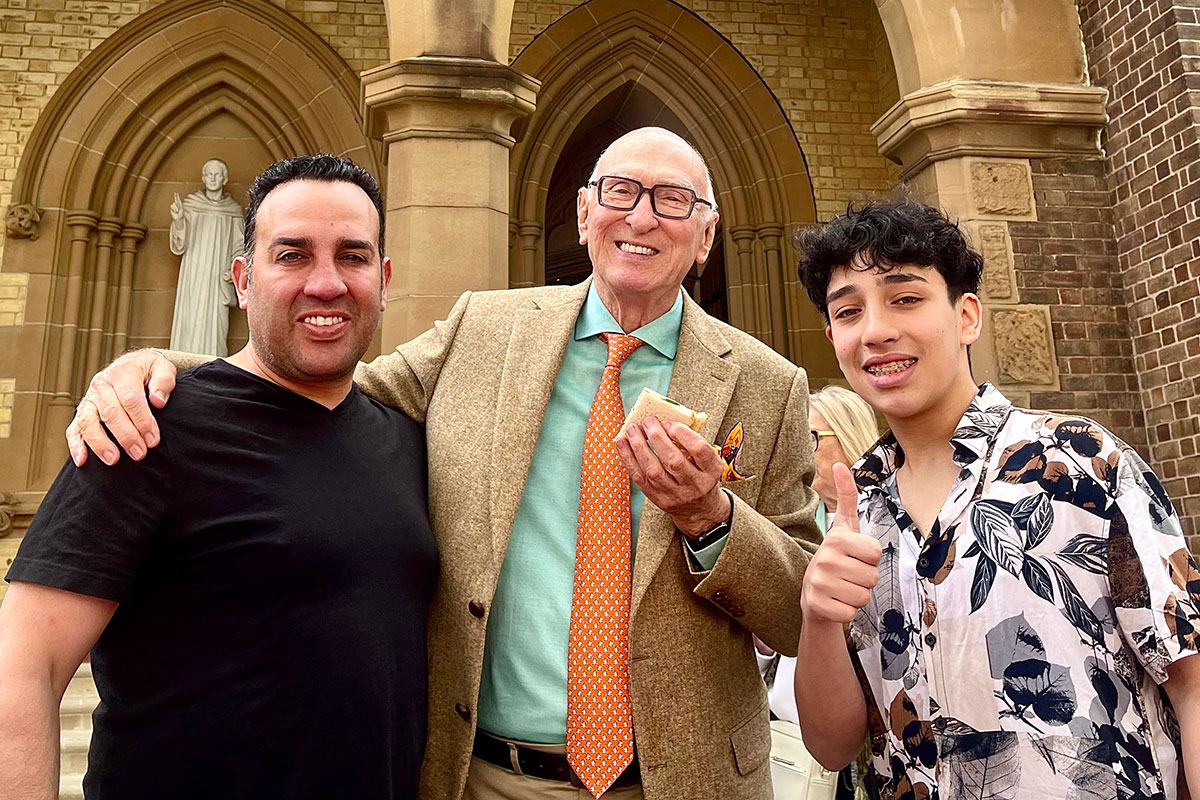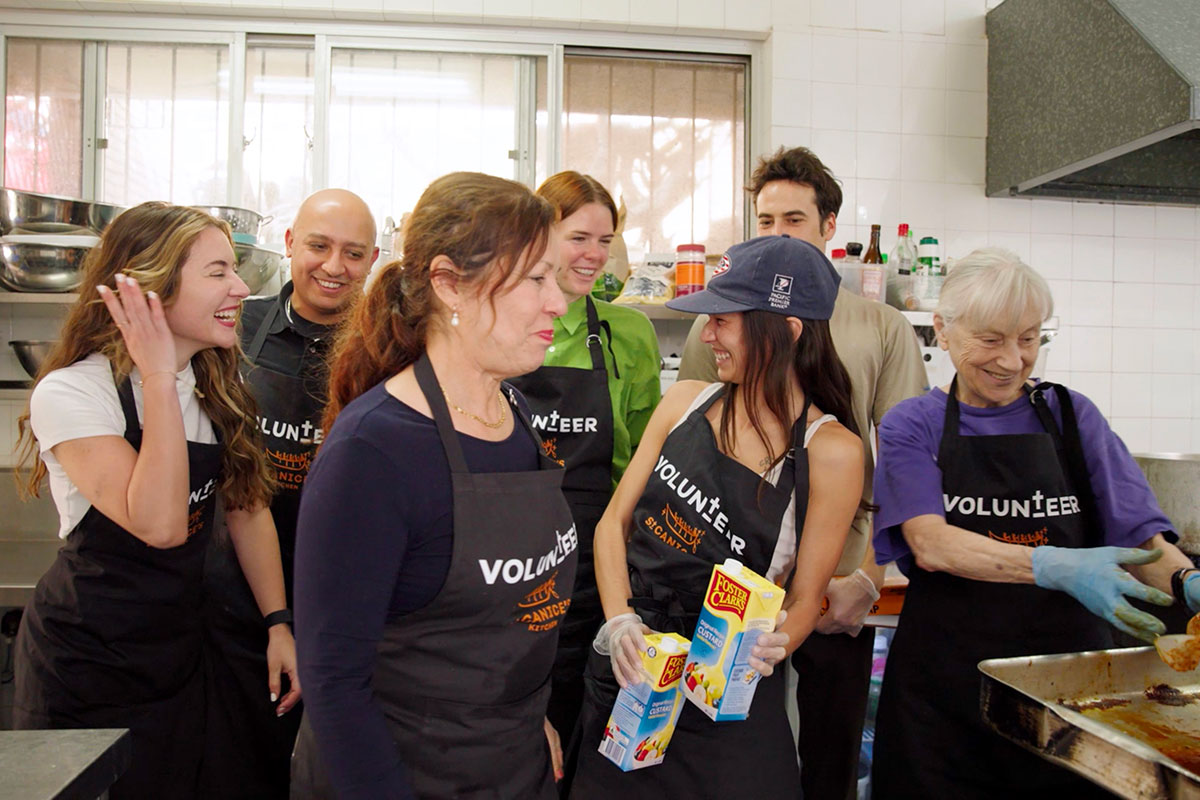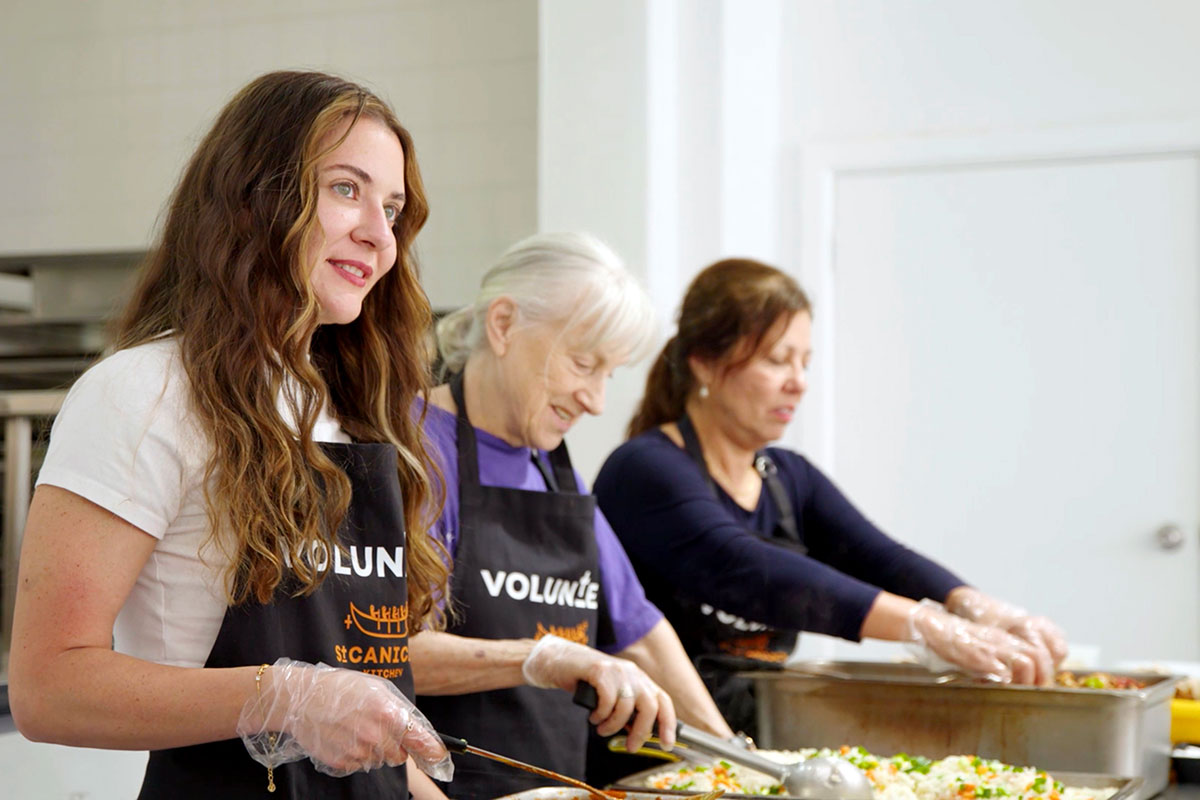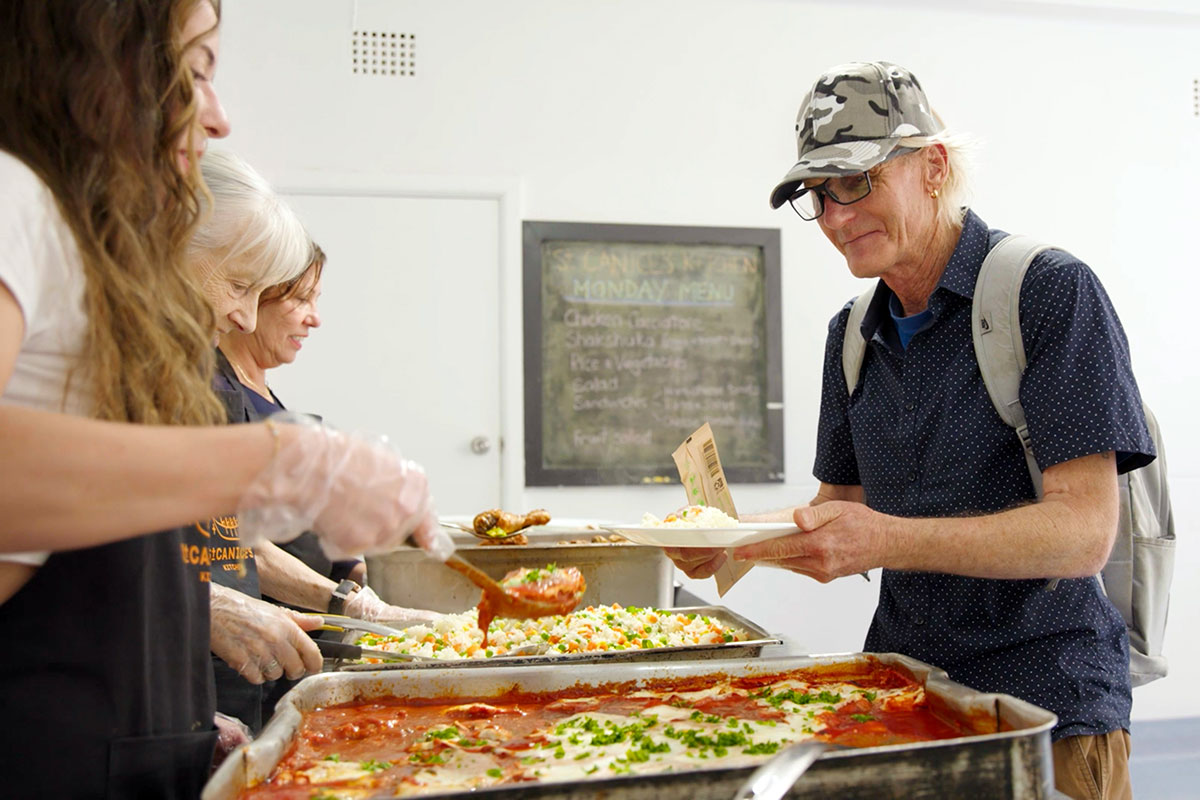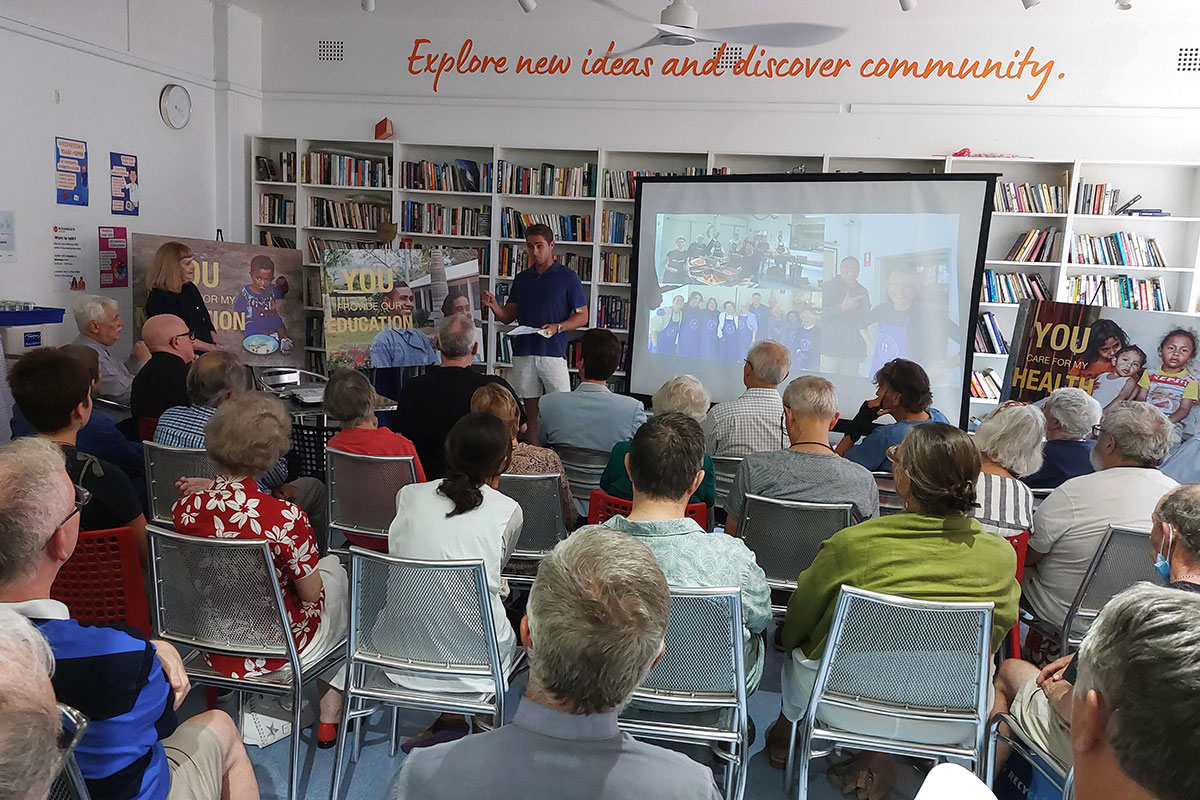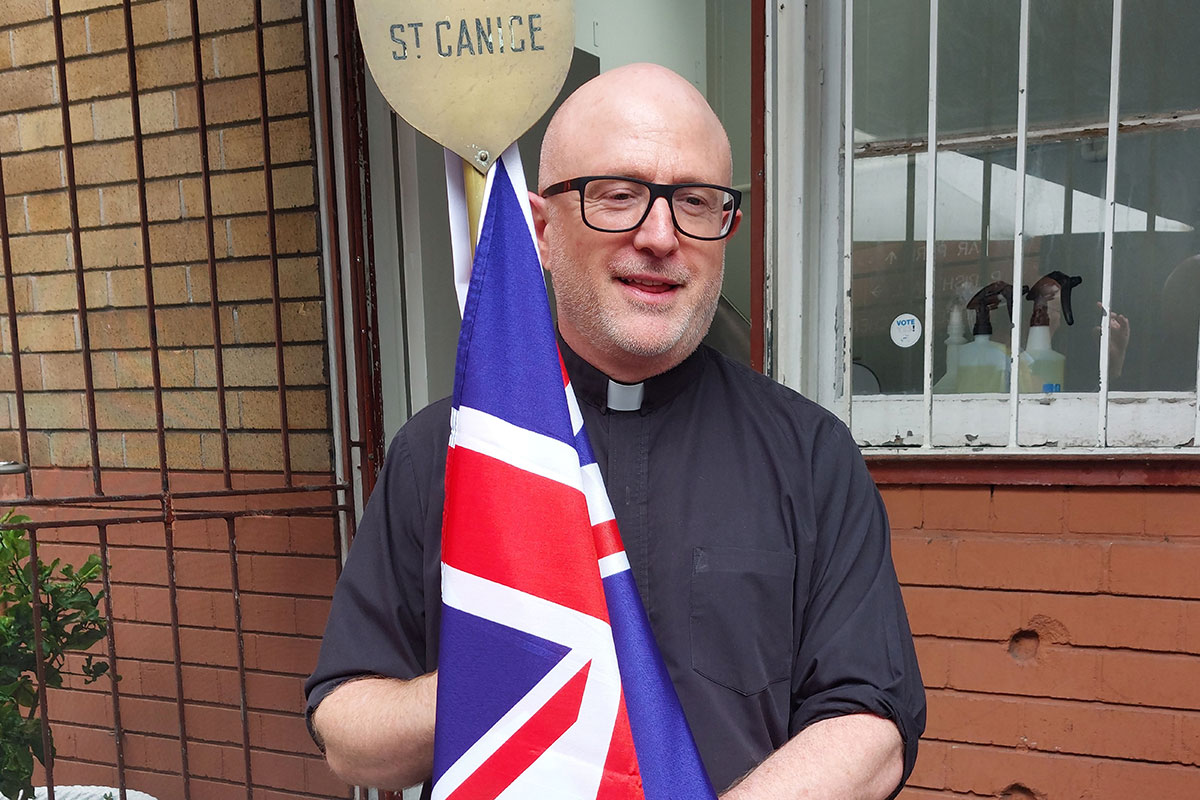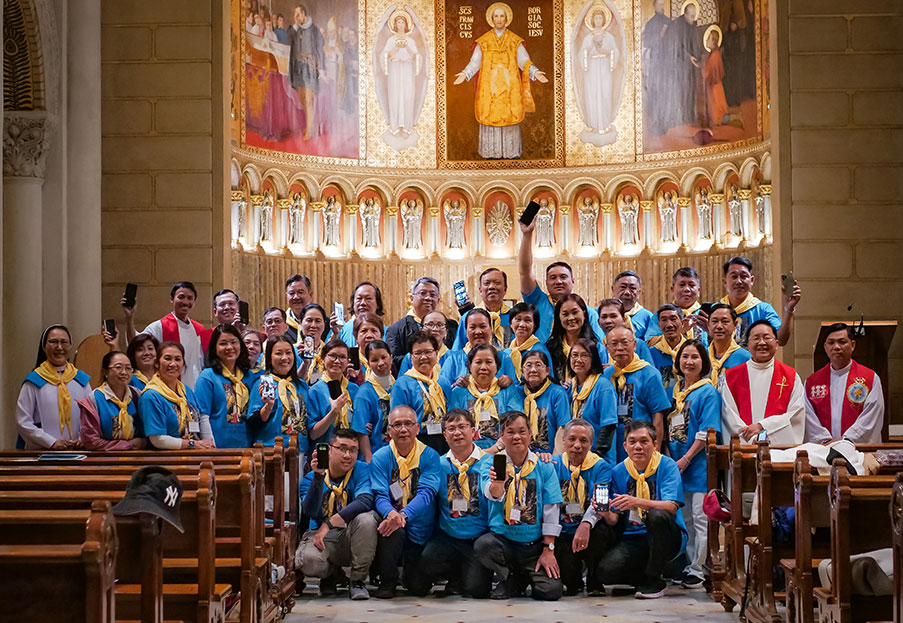Curious grace at St Canice’s in Sydney
Among the visits Father General made to the works of the Australian Province in Sydney was to the parish of St Canice, well known for its soup kitchen, which is generally referred to simply as St Canice’s Kitchen. Father Sosa was able to meet some of the people who regularly frequent this point of welcome and friendship, right in the centre of Sydney. It has been said that St Canice’s has reinvented the concept of the parish... something which its parish priest is not all that comfortable with. David Braithwaite is also an enthusiastic promoter of an open style of parish life, which implies a variety of levels of association, at the heart of which, he emphasises, is the celebration of the Eucharist.
A
spiritual life nourishes the mission, a mission that extends far beyond the
walls of the church and that responds to Pope Francis’ exhortations to a
Christianity, inclusive especially to the poor. The Jesuit parish priest speaks
of a congregation that can be accessed through different doors. The old stone
arches of the church are just one of them. So what about the well known St Canice’s
Kitchen? What’s so special about this social work? David Braithwaite explains.
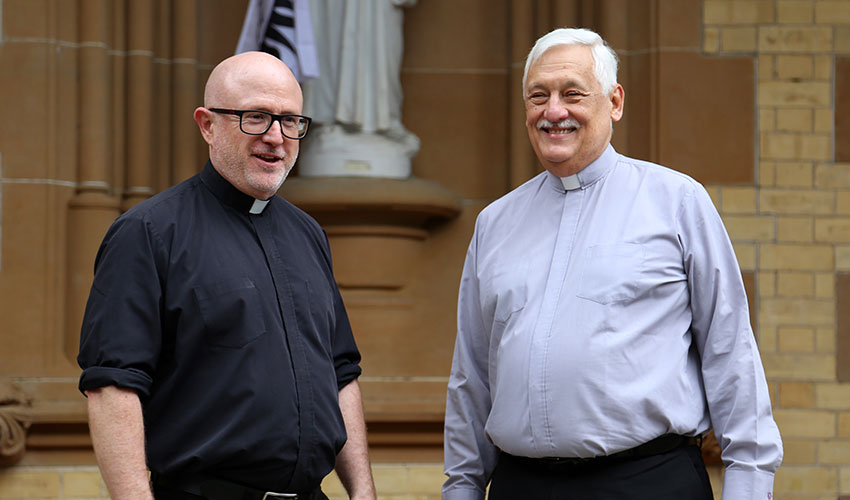
Fr David Braithwaite (left) with Father General.
“In many ways it is similar no doubt to other places but shaped by the distinctive and colourful history of this part of inner-city Sydney. We are doing our best to find ways to develop social interconnectedness, using our commercial kitchen and extensive spaces. This offers a pathway to a more financially sustainable future for the Kitchen, and I hope provides training and employment opportunities for people too.
We invite the usual parishioners to be part of the Kitchen. This is something of a challenge, since we are a very mixed parish with some very wealthy parishioners and also some who “sleep rough” at night on the streets. The best way is to let our well-to-do parishioners volunteer in the Kitchen, and some have been doing so for 35 years. The other way is to make those who come for meals in the Kitchen feel welcome to attend our Masses, as well as other parish events. This genuinely “shared table” deeply enriches our liturgy.
A
new initiative in 2024, which seeks to bridge the gap between the Kitchen and
the Parish, is being piloted in collaboration with the Justice and Peace Office
of the Archdiocese of Sydney. It’s called ‘Curious Grace’ and will offer a
drop-in centre model involving various group activities for all people, regardless
of their social conditions. This is one way we are trying to ensure the integration
of groups in the parish. Some of the planned activities include dance therapy,
creative writing classes, etc. which may appeal to a variety of people, but
particularly the elderly. It’s all about building community and combating the
pandemic of loneliness that plagues urban life.”
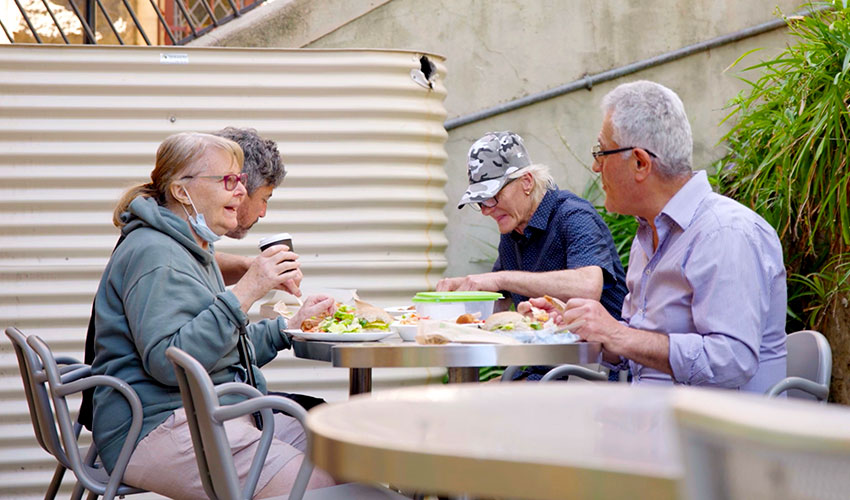
We then asked the parish priest about the link between St Canice’s and the Universal Apostolic Preferences (UAPs). He was very clear.
“I hope that our parish and kitchen align with all of the UAPs, but one that I am particularly focused on is ‘accompanying young people’. Finding ways to engage young adults is a central strategic priority here, as it should be anywhere of course, but especially in an inner-city parish that tends to be frequented predominantly by the elderly. The young are less likely than their parents or grandparents to self-identify as Catholic, and yet have a clear thirst for justice, and a desire for community beyond just the workplace and home. Offering a suite of opportunities, focussed on service, but also intellectual and spiritual engagement, is part of our strategy at St Canice’s.
To
this end, social enterprise is a key point of engagement since so many young
adults in the inner-city are working in corporations and developing skills that
can be applied to social problems. For example, this parish has a 20-year
sister relationship the Jesuit Parish of Our Lady of Fatima in Railaco, East
Timor, which offers yet another doorway for engaging young people in developing
that relationship further. It provides another way of building solidarity.”
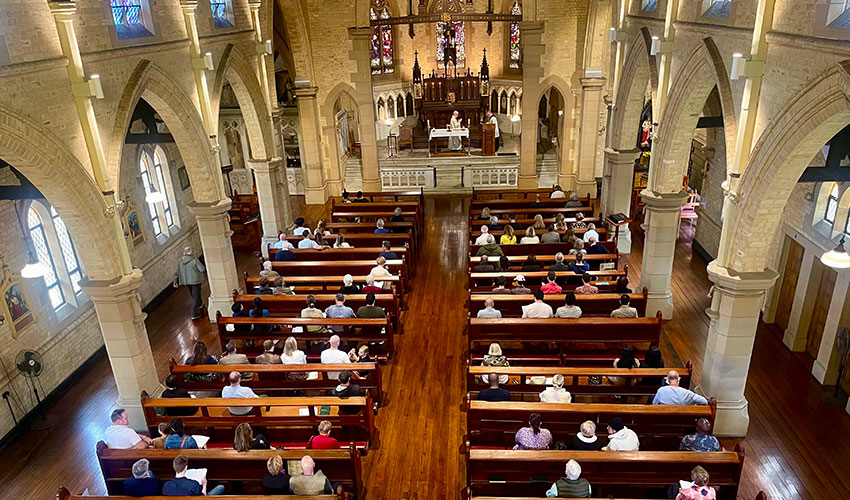
And would Fr David have some specific examples of people who have been touched by St Canice’s and its Kitchen?
“One that springs to mind is ‘Pat’ who is a middle-aged, non-binary trans person who has had a deeply troubled life that began cruelly with much childhood abuse. Its family has lived on the streets in this part of Sydney their whole life. The other day, Pat came up and thanked me for the meal they’d just enjoyed in our Kitchen with such profound and heartfelt gratitude. He said how important our Kitchen is to them as a safe place of welcome. I’ve rarely been rewarded with such deep thanks in my entire life, and it was terribly humbling.
Another was a young man named ‘Nick’ about 19 years old who entered the church one Sunday during Mass. He told me, on the steps of the church, that he’d never been to a Mass before but was drawn in by the music and our beautiful neo-gothic, sandstone church. He is typical of the young searchers in this part of Sydney who are lost in a secular fog, but who are also drawn to beauty and intrigued by the mystery of our faith. He said something that stayed with me, ‘I feel like my family’s forgotten God, but I think I want to know what I’ve missed out on’.”
No
doubt, Fr General could feel that St Canice’s is making real the Ignatian
spirit of the UAPs!
